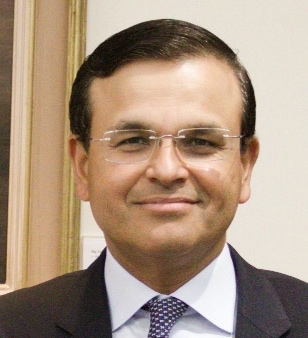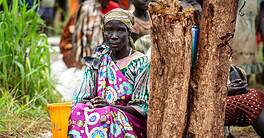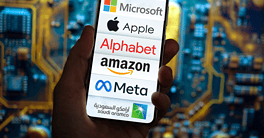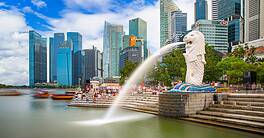Sunil Kaushal, Standard Chartered’s regional CEO for Africa and the Middle East, talks about upcoming changes for the bank and how it is faring coming out of the pandemic.

Global Finance: How is your bank doing this year, and what are its prospects?
Sunil Kaushal: After a rough 2020 due to the Covid-19 pandemic, Standard Chartered had a successful first quarter. For Africa and the Middle East, the bank is well positioned for growth moving into the rest of the year, and this is clearly illustrated in our results. Despite a challenging macroeconomic backdrop, underlying operations continue to be resilient. The distinct competitive advantage of our network capabilities and strong product offerings allowed us to connect to our clients across Africa and the Middle East and grow key corridors into the region.
GF: Setting aside the pandemic, GCC economies are undergoing significant change. In your opinion, what financial products and services need to be developed to accompany these multifaceted transformations?
Kaushal: Digitization is a key area of focus, and we know that the Covid-19 crisis has caused a significant shift in the banking sector, accelerating the drive toward digital adoption. While traditional banks still dominate across the region, it has become increasingly clear that relying on existing tools and customer bases will not be enough. Digital transformation is no longer an option but an imperative. There is great opportunity in traditional banks identifying their place on the digital banking spectrum—be it through partnerships with fintechs, “banking as platform,” AI or blockchain—to formulate a clear strategy and subsequently innovate, integrate and accelerate into the future.
GF: How are GCC customers changing?
Kaushal: In regions with a population encompassing mostly young and tech-savvy individuals, such as in the GCC, digital banking is gaining popularity. Additionally, through the Covid-19 pandemic lockdowns, customers have turned to digital channels for all their transactions. A survey we commissioned in September 2020 shows that Covid-19 saw consumers across the world ditch cash and in-person shopping in favor of online spending. Almost two-thirds of survey respondents around the world, and 73% in the UAE, agree that Covid-19 made them more positive about online shopping—but they are also more careful with their spending and want new ways to track their money digitally.
GF: Where in the region are you expanding or investing in stronger operations?
Kaushal: Saudi Arabia is a large, attractive market, and one that we have always been interested in. In early 2020, we announced the appointment of a new CEO for Saudi Arabia. The bank has also won a full banking license from the Saudi Central Bank, upgrading the license from the Capital Markets Authority under which we had been operating previously.
This enables us to add to the investment banking activities we previously ran, giving us capacity to offer commercial banking and deposit-taking. I’m please to say we are now fully operational in Riyadh.
GF: How does your bank engage with green finance and growing calls for sustainability principles in business?
Kaushal: In the wake of the Covid-19 pandemic, we have all witnessed the urgency for global economies to move toward a sustainable recovery. What we are seeing across the region is that both regulators and government authorities have started a series of nationwide sustainability initiatives aimed at reversing the consequences of climate change and have called on institutions to act as champions.
GCC economies, particularly the UAE and Saudi Arabia, are heavily moving toward diversifying their energy mix by investing in renewables, including solar and waste-to-energy.
In 2017, our bank helped obtain $4.32 billion to fund the Mohammed bin Rashid al Maktoum Solar Park in Dubai. Earlier this year, we helped fund one of the largest waste-to-energy facilities in Dubai.



